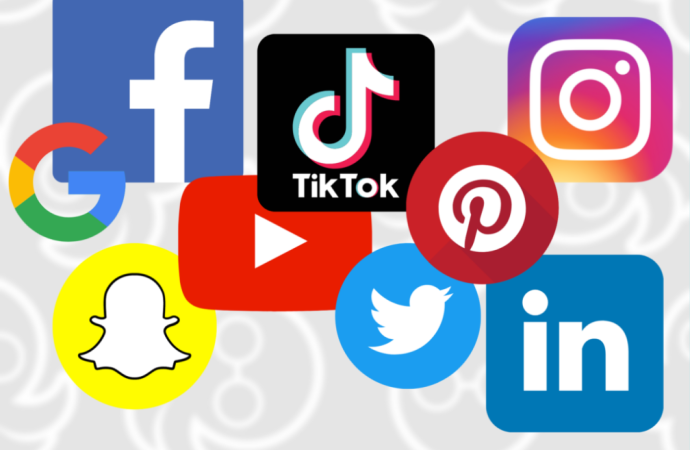Introduction In the digital age, social media has become an integral part of daily life. Platforms like Facebook, Twitter, Instagram, and TikTok are not just used for entertainment and communication, but have also emerged as powerful tools for shaping political beliefs and movements. These platforms enable people to interact, share opinions, and engage with political
Introduction
In the digital age, social media has become an integral part of daily life. Platforms like Facebook, Twitter, Instagram, and TikTok are not just used for entertainment and communication, but have also emerged as powerful tools for shaping political beliefs and movements. These platforms enable people to interact, share opinions, and engage with political content, which often influences how they perceive political issues. This article explores how social media affects political beliefs and movements, examining both its positive and negative impacts on the political landscape.
The Rise of Political Influencers
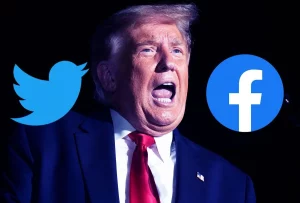
Image by: Yandex.com
Political influencers are becoming more important on social media. These are people with many followers who use their platforms to talk about politics and shape opinions. Influencers can be celebrities, activists, or even regular people. Many young people trust them as sources of information. They can share ideas, encourage people to vote, and support social causes. By doing this, they make politics easier to understand and more interesting for younger audiences, especially those who don’t follow traditional news.
The Role of Social Media in Political Discourse
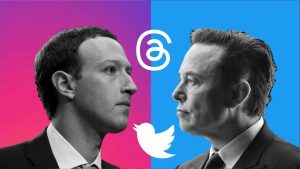
Image by: Yandex.com
Social media has changed how people talk about politics. In the past, traditional media controlled political news, but now, anyone can share their views online. Politicians, organizations, and regular people can post news, opinions, and even propaganda directly to large audiences. This makes it easy for messages to spread quickly, often without being checked for facts.
Social media content, like tweets, memes, and videos, can go viral in no time. This means political ideas can reach people who might not have seen them otherwise. The fast spread of information has created a new way for people to engage with politics, as they are constantly exposed to different opinions and perspectives.
Impact on Political Beliefs
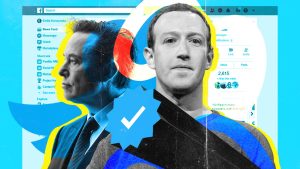
Image by: Yandex.com
Social media has a big impact on how people form political beliefs. It lets users see different political ideas and share their own through comments, likes, and shares. Social media platforms use algorithms to show content based on what people like and interact with. This often creates “echo chambers,” where people mostly see opinions that match their own. This can make their beliefs stronger but can also lead to more divided opinions, making it harder to understand other viewpoints.
Positive Aspects of Social Media on Political Beliefs
- Increased Political Awareness: Social media makes it easy to learn about politics and current events. People can follow politicians, activists, and groups to stay updated on policies and campaigns.
- Enhanced Political Engagement: Social media allows people to join political conversations, sign petitions, or organize rallies. For example, users can tweet at leaders or share posts about important issues.
- Empowerment of Marginalized Voices: Many underrepresented groups now have a voice through social media. Activists can organize movements, share their stories, and push for change.
Negative Aspects of Social Media on Political Beliefs
- Echo Chambers and Polarization: Algorithms often show users content they already agree with, making their opinions stronger but limiting exposure to other ideas. This can lead to more political division.
- Misinformation and Fake News: Social media is a common source of fake news. Since anyone can post, false stories can spread quickly, affecting public opinion and even elections.
- Manipulation by Foreign and Domestic Actors: Both foreign and local groups use social media to influence opinions. They may use ads, bots, or fake accounts to promote certain messages and disrupt democratic systems.
Social Media’s Influence on Political Movements
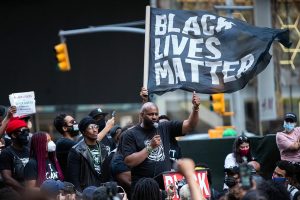
Image by: Yandex.com
Social media has greatly influenced political movements. Platforms like Twitter and Facebook have been used to organize protests, spread political ideas, and challenge those in power. Movements like the Arab Spring, Black Lives Matter, and #MeToo show how social media has helped people come together to push for change.
The Power of Hashtags and Viral Campaigns
Hashtags are a key part of social media, helping people connect over a specific issue. They make it easier to find information about movements and join in the action. For example, #BlackLivesMatter has become a symbol for fighting racial injustice. By using hashtags, people can spread their messages, raise awareness, and encourage others to get involved.
The Globalization of Political Movements
Social media allows movements to go beyond borders. Issues that used to be seen as local, like climate change or human rights abuses, can now attract worldwide attention. Movements like Fridays for Future, led by Greta Thunberg, use social media to connect with millions of people around the globe, urging political leaders to act on climate change.
The Dark Side: Online Hate and Extremism
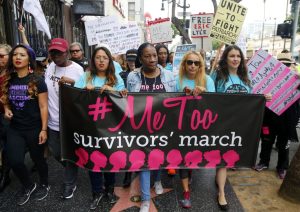
Image by: Yandex.com
While social media has provided a platform for political change, it has also facilitated the spread of hate speech, extremism, and radical political ideologies. Far-right and far-left groups often use social media to recruit members, spread conspiracy theories, and incite violence. This dark side of social media presents a significant challenge to maintaining a healthy political environment.
Social Media as a Tool for Political Activism

Image by: Yandex.com
Social media has become a powerful tool for activism. Activists can use platforms like Twitter, Facebook, and Instagram to raise awareness about important issues and encourage people to take action. Social media makes it easy to share information quickly, helping to organize protests, petitions, and awareness campaigns. Hashtags like #MeToo and #BlackLivesMatter show how social media can give a voice to important movements and bring attention to social justice issues. By connecting people who care about the same causes, social media has helped drive change and push for political reforms.
The Global Reach of Social Media in Politics
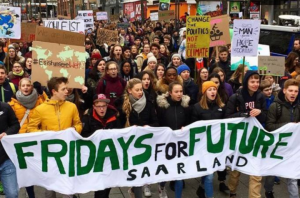
Image by: Yandex.com
One of the special things about social media is that it can connect people all over the world. Political movements and events can be shared quickly across countries, bringing attention to issues like climate change and human rights. It also allows political leaders to reach people in different parts of the world. Social media helps ideas travel easily between countries, making it a powerful tool for global change. However, this can also create problems, such as foreign interference in elections, which has become a growing concern in many countries.
The Spread of Misinformation on Social Media
One of the biggest issues with social media is the spread of misinformation. Fake news and misleading information can quickly go viral, influencing people’s opinions. False reports, rumors, and biased stories are shared widely, especially during important events like elections. This can lead to confusion, fear, and poor decision-making by the public. While social media platforms are trying to address this problem, it remains a serious challenge in ensuring that only truthful information is shared.
The Impact of Social Media on Traditional News
Social media has changed the way we get our news. Many people now turn to platforms like Twitter or Facebook for the latest updates, instead of traditional news outlets like newspapers or TV. This has made news more immediate and accessible but has also raised concerns about the accuracy and reliability of the information. Traditional media outlets must now compete with social media for attention, often trying to capture the same audience. As a result, there is a risk that sensational or biased stories are shared more than factual ones.
Challenges of Social Media in Politics
Even though social media has many benefits, it also brings challenges. One major problem is the spread of false information. Anyone can post anything online, whether it’s true or not, leading to the spread of fake news. Another issue is “echo chambers,” where people only see opinions that agree with their own. This can make political divisions worse and stop people from understanding other viewpoints. Additionally, bad actors, such as foreign governments or extremist groups, can use social media to influence opinions and interfere with democratic systems.
The Future of Social Media in Politics
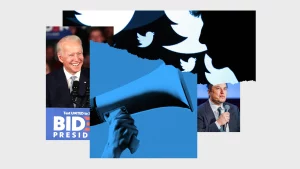
Image by: Yandex.com
Looking ahead, social media will likely continue to play a significant role in politics. As technology improves, platforms may become even more interactive, allowing for new ways of engaging with politics. However, there will need to be better management and regulation to prevent the spread of misinformation and ensure fair use of these platforms. Social media may also see more efforts to address issues like online hate and extremist content. As it evolves, social media will remain a powerful tool for shaping political beliefs and movements, but it will require careful handling to ensure that it is used responsibly.
Comparative Table: The Influence of Social Media on Political Beliefs
| Factor | Positive Impact | Negative Impact |
|---|---|---|
| Political Awareness | Provides easy access to information. | Can lead to information overload or bias. |
| Political Engagement | Encourages participation in political discussions and campaigns. | Can lead to increased polarization and division. |
| Marginalized Voices | Empowers underrepresented groups and activists. | Can be co-opted by extremist groups. |
| Echo Chambers | Encourages community building among like-minded individuals. | Reinforces existing beliefs, limiting exposure to diverse viewpoints. |
| Misinformation | Enables quick dissemination of political information. | Spreads fake news and false narratives. |
| Global Political Movements | Facilitates global connectivity and collective action. | Can be manipulated by foreign governments or malicious actors. |
Analysis Table: Social Media’s Impact on Political Movements
| Political Movement | Social Media’s Role | Outcome |
|---|---|---|
| Arab Spring (2010-2012) | Used Twitter and Facebook for organizing protests and spreading awareness. | Played a key role in overthrowing authoritarian regimes in the Middle East. |
| #BlackLivesMatter (2013-present) | Amplified messages about police brutality and racial inequality through Twitter and Instagram. | Raised global awareness of systemic racism and led to widespread protests. |
| Fridays for Future (2018-present) | Greta Thunberg used Twitter and Instagram to mobilize young people around climate change. | Sparked a global movement demanding urgent action on climate change. |
| #MeToo Movement (2017-present) | Empowered survivors of sexual harassment to share their stories via Twitter and Instagram. | Increased awareness of sexual harassment and led to cultural shifts in workplace behavior. |
Conclusion
Social media has revolutionized the way people engage with politics. It has empowered individuals to become more informed, more involved, and more connected with political movements. However, it also comes with significant risks, including misinformation, echo chambers, and the potential for radicalization. While social media can be a powerful tool for positive change, it requires careful management and responsible use to ensure that it contributes to a healthy and informed political landscape. As political beliefs continue to evolve in the digital age, social media will undoubtedly remain a key player in shaping the future of politics.

